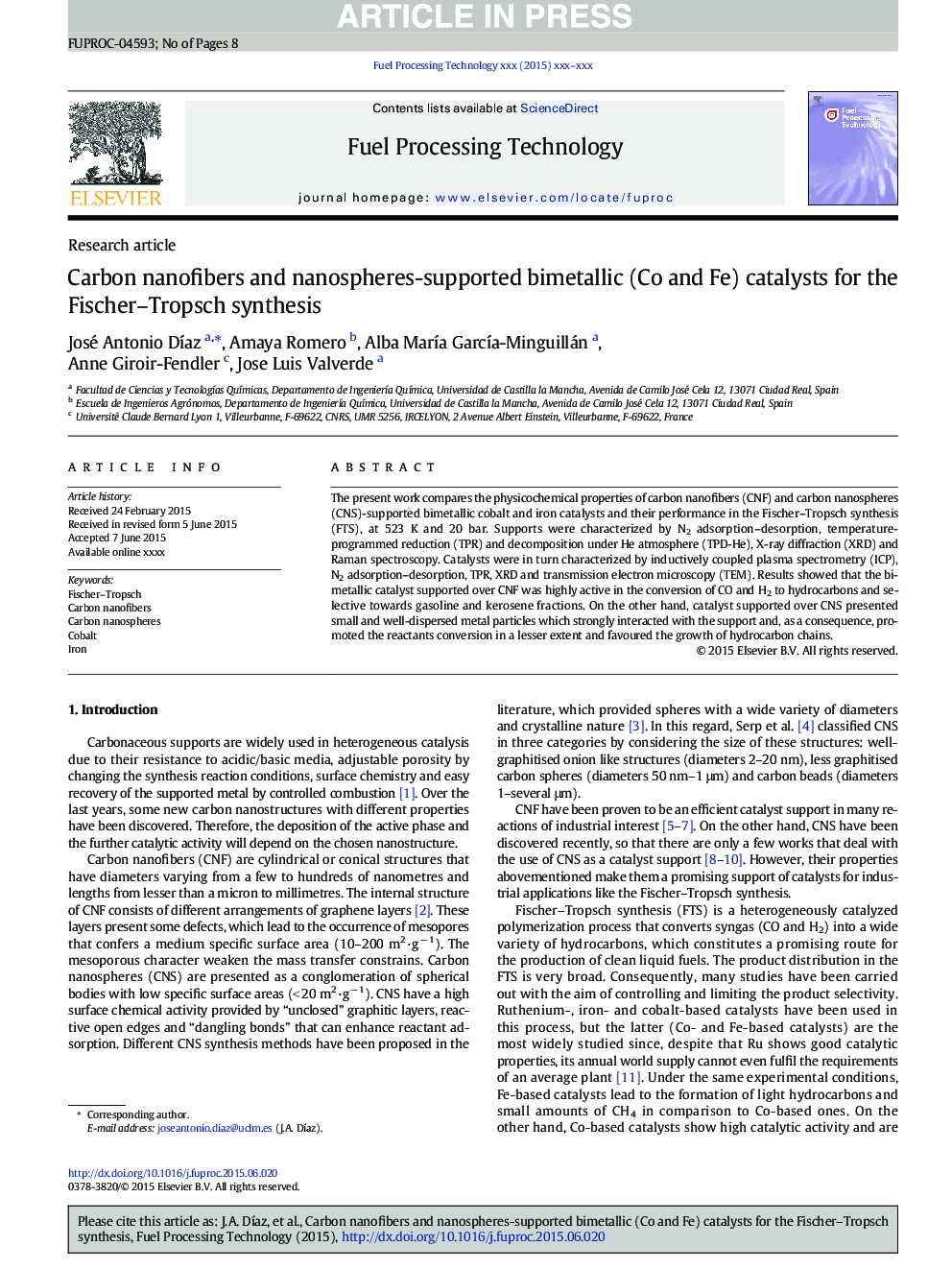| Article ID | Journal | Published Year | Pages | File Type |
|---|---|---|---|---|
| 6656881 | Fuel Processing Technology | 2015 | 8 Pages |
Abstract
The present work compares the physicochemical properties of carbon nanofibers (CNF) and carbon nanospheres (CNS)-supported bimetallic cobalt and iron catalysts and their performance in the Fischer-Tropsch synthesis (FTS), at 523Â K and 20Â bar. Supports were characterized by N2 adsorption-desorption, temperature-programmed reduction (TPR) and decomposition under He atmosphere (TPD-He), X-ray diffraction (XRD) and Raman spectroscopy. Catalysts were in turn characterized by inductively coupled plasma spectrometry (ICP), N2 adsorption-desorption, TPR, XRD and transmission electron microscopy (TEM). Results showed that the bimetallic catalyst supported over CNF was highly active in the conversion of CO and H2 to hydrocarbons and selective towards gasoline and kerosene fractions. On the other hand, catalyst supported over CNS presented small and well-dispersed metal particles which strongly interacted with the support and, as a consequence, promoted the reactants conversion in a lesser extent and favoured the growth of hydrocarbon chains.
Related Topics
Physical Sciences and Engineering
Chemical Engineering
Chemical Engineering (General)
Authors
José Antonio DÃaz, Amaya Romero, Alba MarÃa GarcÃa-Minguillán, Anne Giroir-Fendler, Jose Luis Valverde,
